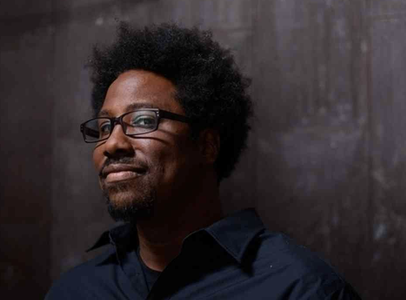From Inner Strength to A Revolution of Hope: Fresh Reflection on King’s Legacy
Some time around late November I start a version of coffee and conversation in my head. The question for debate has been the same: is Martin Luther King, Jr. too remote and too much of an icon to matter anymore? When is the reflection successful and what makes any of this matter?
This year, I’ve added a few questions: Why — each and every time — is it that when we do commemorative activities, programs, and events around the work of Martin Luther King, Jr. and the other people of the time, we have to go retro? I appreciate reading the old texts, singing the standards, and trotting out the old-timers for the usual lecture and circled discussion.
As I reflect on Martin Luther King, Jr. and those times, this year, I need something smart that makes me brave enough to see where I truly am. I could use that provocative nudge to a feeling of who I am, yet, with an awareness of the political. A point of view that shocks me to remember the spirit of a moment and the spirit of a movement that has been going on for a long time.
This year, as we reflect on the unsustainable contradictions in American society, and the legacy of civil rights and power to people, let’s get on a different path. We’ll get together on the Martin Luther King, Jr. National holiday – January 20, 2014 – with socio-political comedian, community activist, and late night TV host W. Kamau Bell. The Roxbury Youth Orchestra and Boston University’s Inner Strength Gospel Choir will also perform during the afternoon. We’ll start thinking together at 2 p.m.
It’s a bit taboo and kind of new. Tired of the dusty grooves and content that can make me feel like I met a portion of my obligation to the ancestors by attending an annual meeting. Maybe I’m just numb — from over use — to the MLK commemoration programs, methods, and conversations. If I can’t get a new spin on the “I Have a Dream” riff I’m going to have an existential hurl. If somebody else doesn’t supply me with a fresh, future-oriented “dream-deferred” take I’m not going to move from my glassy-eyed spot in the corner.
I’m worried that my continued sobriety on MLK Day has me jonesing with cynicism. A little youthful play and less-sober riffing might restore my hope. This year, I’m taking a look at racism, consumerism, poverty, and war in the style of Cecil Brown, Fran Ross, Ishmael Reed, Zora Neale Hurston, and Richard Pryor. Let’s go — this MLK Day — with a shoutout to that youthful, rebellious remix and the kind of barber-shop riffs that used to inspire me — commentary through satire and humor.
Peace.
